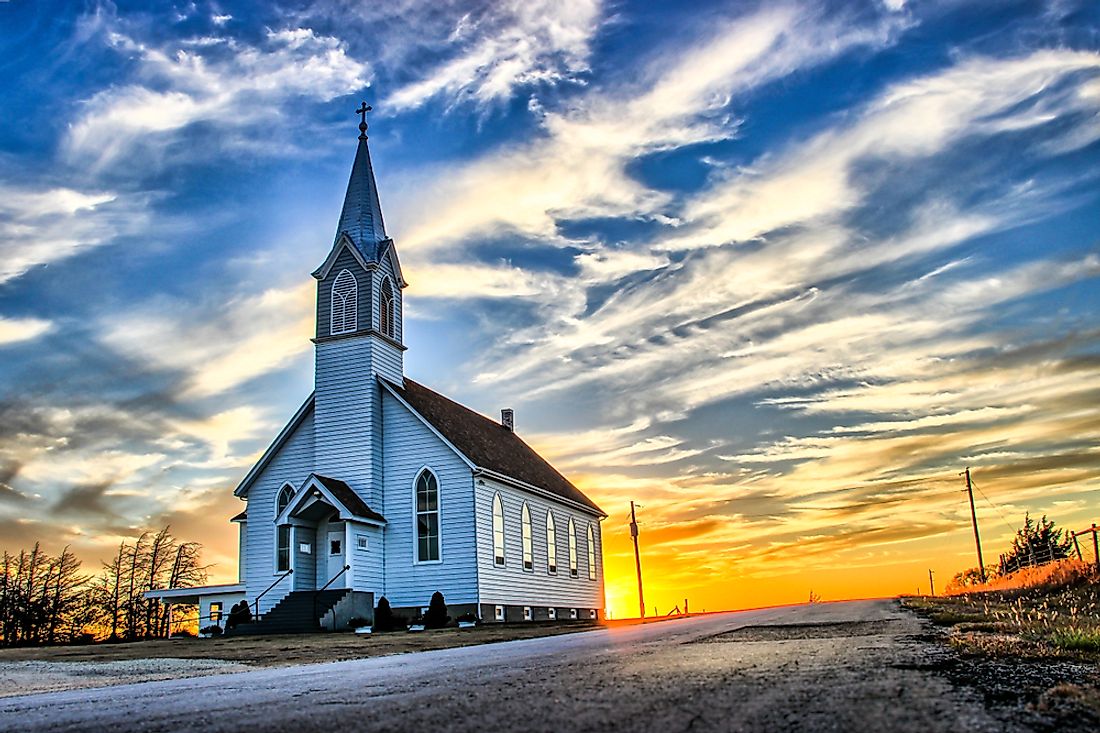Religious Beliefs In Kansas

Kansas is a state in the US located in the midwestern region of the country. Like any other state in the US, the state has several religions divided among the population of about 2,907,289 people (July 2016 estimate). These religions include Christianity, Judaism, Islam, Buddhism, and others. On a broad scale, these religions can be categorized into Christian and non-Christian faiths. As is the case in most parts of the world, Christianity is subdivided into smaller subdivisions such as Protestants and Catholics. However, as much as the state has these two major religious groups, there are two more groups of people in the state. The first group is for those who do not have any affiliations with religion while the other group is for those who do not know their religion.
Religion In Kansas
Data from the Pew Religious Landscape Survey from 2014 shows that Christianity is the biggest religious group in Kansas, with a following of about 76% of the total population. The unaffiliated come in the second place with a portion of about 20% of the total population while non-Christian religions are third with a following of about 4%. Those who are not sure about their religious affiliations make up a negligible portion of less than 1%.
Christianity is the most popular religion since the region is part of the Bible Belt where Christianity is the dominant religion. Among Christians, Protestants make up 57% of the Christian population while Catholics make up 18%. The remaining 1% comprises of the Mormon Church and Jehovah’s Witness. However, data from the Association of Religion Data Archives from 2010 shows that the Catholic Church has the highest number of followers (426,611). This high number is despite the fact that Protestants have a higher portion of adherents. These numbers can be explained by the fact that Protestants are further subdivided into different denominations including Evangelical, Mainline, and Black Protestants. Data also shows that religion is becoming something for the older generations with baby boomers having the highest number of Christians. By comparison, millennials are slowly steering away from religion, which is a common trend in all the US states as the younger generations have lost faith in traditional systems.
Other religions have been present for a short time while others have been around longer. For example, Judaism traces its roots all the way back to 1854 when the first Jewish settlers arrived. The early Jews began spreading the religion until they managed to open the Jewish Community Center of the state in 1917. The community has grown over the years and has produced prominent individuals such as congressional representatives and senators. As of 2017, there were about 17,300 Jews in Kansas.
Irreligion
Similar to other states in the US, there is a growing trend of irreligion in the state. Data shows that atheists and agnostics make up 2% and 3% of the population of the total 20% of the unaffiliated in Kansas. However, the remaining 14% comprises of individuals who believe in nothing in particular. These high numbers can be explained by the fact that more parents are raising children out of the church set up as times and mentalities keep on changing.







